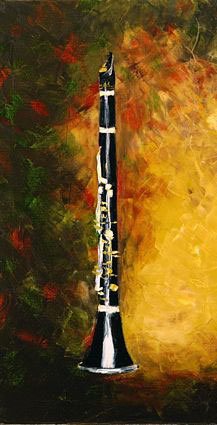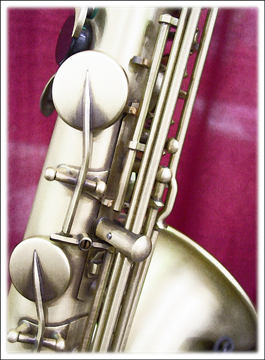|

Wooden Instruments
With any new wooden instrument, a playing-in period is important. The wood is not used to being subjected to warm moist
air. Wood expands primarily as a result of an increase in temperature and/or because of water absorption. Fast expansion may
cause cracking if it occurs too quickly. You may play the instrument as often as you wish, but only for short periods. A guide
would be for only 20 minutes at a time for the first week, 30 minutes at a time for the second week and then gradually increase
the time from there. These periods may be repeated a number of times each day. Use a pull through to dry the bore each time
you play to remove excess moisture.
Once a month, put two or three drops of bore oil on your pull through. This will result in a small amount of oil being
absorbed by the instrument to replace the natural oils that are lost through evaporation and during the cleaning process.
These oils help to stabilise the wood and therefore help to prevent cracking. Always keep pull-throughs separate from the
instrument otherwise the moisture that you have removed from the instrument will still be able to affect it.
The keywork should be carefully cleaned with an impregnated polishing cloth (never use liquid polish) this will help to
protect from tarnishing and pitting due to perspiration acids.
Always ensure that your instrument is not subjected to sudden changes in temperature.
Always avoid undue pressure on the mechanism particularly when assembling or disassembling the instrument.
Your instrument should be professionally serviced at least every 18 months or so (depending on usage). This will keep
it in top playing order and help to prevent small problems from becoming large (expensive) ones. Don't forget - don't wait
until something goes wrong. Make regular servicing bookings.
|
 |
|
|
|
 |
 |
|

Metal Instruments
Flutes and saxophones obviously do not need the same playing-in treatment as wooden instruments or the use of oils in
the bore. In almost all other respects they require the same care and attention: be careful when assembling and disassembling
them - avoid pressure on the keywork; put the different sections together carefully to avoid distorting the joints; swab out
thoroughly after use (every time); use a lacquer cloth or silver polishing cloth (as appropriate) regularly. Never use liquid
or wadding polishes on plating as they will damage plating, pads and mechanism. Do not lubricate metal to metal joints. If
they become stiff, clean them thoroughly with a cloth.
Have the instrument professionally serviced probably not more than every 12-18 months or so depending on usage. Don't
forget to book your service well in advance.
|
 |
|
|
|

